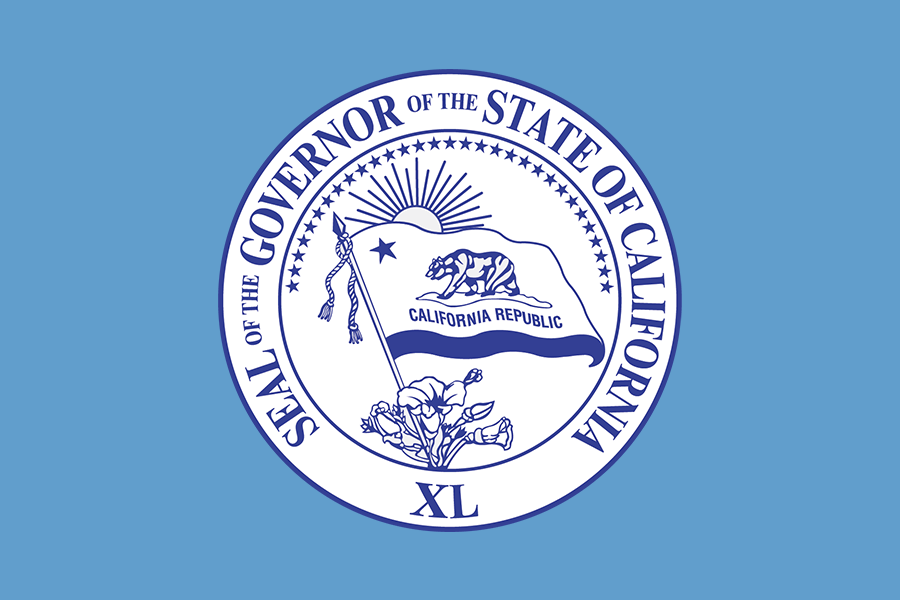Governor Newsom signs early childhood law highlighting transformative investment in early education
[ad_1]
AB 1363 develops methods of identifying and reporting data on bilingual learners in government pre-schools, and SB 393 improves access to childcare for migrant agricultural workers by coordinating voucher-based childcare programs
Comeback plan for California Achieve free, high-quality universal Pre-K for all four-year-olds by 2025 and creates college savings accounts for 3.7 million children
FRESNO – At a Fresno elementary school, Governor Gavin Newsom signed law today promoting bilingualism and improving access to childcare. The governor also highlighted the California Comeback Plan’s unprecedented investments to achieve universal transitional kindergarten and create college savings accounts for 3.7 million children by 2025.
“In California, we are committed to transforming our public schools to promote equality, inclusivity and opportunity for every student,” said Governor Newsom. “Building on this year’s historic budget investment in universal pre-K and college savings accounts, these bills will improve access to a good education for children across California so that every child regardless of race, home language, or zip code will thrive can .”
The California Comeback Plan includes investments to turn public schools into gates of opportunity. As part of the 123.9 billion 26. The plan also reduces class size and halves the adult-to-child ratio, with an average of at least 1 adult for every 12 children, from one to 24 children.
The plan is also investing $ 1.9 billion to create college savings accounts of up to $ 1,500 for 3.7 million current low-income students, English learners, and the cared for and homeless. In the future, savings accounts will be set up in the first grade for these groups of students.
“We know from research and experience that the early years are crucial in supporting a child’s learning and development. Universal Pre-K is California’s opportunity to give every child, regardless of their race, race, zip code, immigration status, or income level, the fair start they need and deserve on their path to success, â€said State Superintendent of Public Instruction Tony Thurmond . “I am proud to have sponsored Universal TK’s legislation and to work with the governor and legislature in making this big step forward.”
“Every child deserves access to high quality early childhood education that prepares them to be successful in kindergarten and beyond. Universal Transitional Kindergarten (UTK) is making this a reality, â€said Congregation member Kevin McCarty. “High-quality early education makes children fit for school success, strengthens working families, reduces gaps in opportunities and breaks the cycles of poverty between the generations. UTK is a huge asset to California’s children and families. Thank you, Governor Newsom, for your unwavering commitment to our youngest learners. “
“I am thrilled that California is making history by investing in our children, their education and their future. Wealth inequality and high educational costs have slammed the door on low- and middle-income advancement across our state, â€said Adrin Nazarian, member of the congregation. “A child savings account donates more than just a monetary asset, it donates hope and optimism. This funding is a real investment in California’s next generation of entrepreneurs, scientists, educators and community leaders. “
“As a woman of color, I am proud to represent a district that is mostly Latinos and people of color,” said Luz Rivas, Congregation member, author of AB 1363 First Language, and today we are taking decisive action to ensure our early learning opportunities empower bilingual students. With the signing of AB 1363 by the governor, California once again leads the way in education policy by being the first state to establish a standardized process that identifies and supports K-12 dual language learners at an early age. I would like to thank Governor Newsom for reaffirming California’s commitment to equity and inclusion in its public education system as every student deserves the chance to succeed in their unique learning environment. â€
“Governor Newsom’s historic guidelines for promoting early learning for our youngest Californians are a turning point,” said Patricia Lozano, executive director of Early Edge California. “You are bringing California closer than ever to providing justice for all in education. From expanding Universal Pre-K to providing resources for multilingual learners, Governor Newsom and the Legislature are tasked with helping all California students achieve success in life. “
AB 1363 by MP Luz Rivas (D-Arleta) requires the Superintendent of Public Instruction to develop procedures for state preschool companies to identify and report data on learners in two languages. SB 393 by Senator Melissa Hurtado (D-Sanger) is aligning the alternative payment program for migrant childcare with other voucher programs, thereby improving access to childcare for migrant agricultural workers. AB 1294 by Bill Quirk (D-Hayward) extends the county childcare pilot program for Santa Clara county by one year to July 1, 2023.
The California Comeback Plan also provides $ 10 million to expand dual language immersion programs and $ 300 million to increase the number of state preschool or TK programs and provide additional pre-k teacher training. It is investing $ 490 million to help build and renovate government preschool, TC, and kindergarten facilities. The plan provides for 200,000 new childcare places by 2025-26, which will dramatically expand access for families.
Below is a full list of the bills signed by the governor:
- AB 1294 by Congregator Bill Quirk (D-Hayward) – Childcare: individual county childcare subsidy plans.
- AB 1363 by assembly member Luz Rivas (D-Arleta) – Preschool: bilingual learners.
- SB 393 by Senator Melissa Hurtado (D-Sanger) – Childcare and Development Programs for Migrants.
The full text of the bills can be found at: http://leginfo.legislature.ca.gov
###
[ad_2]

